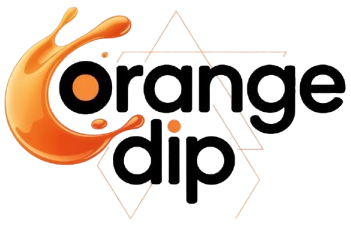One often overlooked but crucial component of this comprehensive approach is nutrition. Implementing a healthy diet can significantly support alcohol use disorder treatment, aiding in recovery and improving overall health. Nutrition plays a pivotal role in repairing the damage caused by alcohol abuse and in fostering a healthier lifestyle that can sustain long-term sobriety.
The Impact of Alcohol on Nutrition
Chronic alcohol consumption severely impacts nutritional status. Alcohol interferes with the body’s ability to absorb and utilize essential nutrients, leading to deficiencies that can exacerbate health problems. Here are some ways in which alcohol negatively affects nutrition:
- Alcohol damages the lining of the gastrointestinal tract, impairing the absorption of nutrients such as vitamins and minerals. This can lead to deficiencies, particularly in vitamins B1 (thiamine), B6, B12, folic acid, and minerals like magnesium and zinc.
- Alcohol is high in calories but lacks essential nutrients. Individuals with AUD often consume a significant portion of their daily calories from alcohol, neglecting nutrient-dense foods. This can result in an imbalanced diet and nutritional deficiencies.
- The liver, which is vital for nutrient metabolism, is often damaged by chronic alcohol consumption. Conditions such as fatty liver, hepatitis, and cirrhosis impair the liver’s ability to process and store nutrients, further contributing to malnutrition.
The Role of Nutrition in Recovery
Incorporating a balanced diet into the recovery plan for AUD can provide numerous benefits, helping to restore physical health and support mental well-being. Here’s how proper nutrition can aid in managing alcohol use disorder:
- A balanced diet rich in vitamins and minerals can help replenish the nutrients depleted by alcohol use. Consuming a variety of fruits, vegetables, whole grains, lean proteins, and healthy fats ensures adequate intake of essential nutrients.
- Certain foods can support liver function and promote healing. For example, foods high in antioxidants like berries, leafy greens, and nuts can help reduce oxidative stress on the liver. Hydration is also crucial, as it aids in flushing toxins from the body.
- Nutrition plays a critical role in brain health and can impact mood and cognitive function. Omega-3 fatty acids, found in fish and flaxseeds, and complex carbohydrates, found in whole grains, can help stabilize mood and improve mental clarity. Amino acids, the building blocks of protein, are essential for neurotransmitter production and can help improve mood and cognitive function.
- Alcohol can cause fluctuations in blood sugar levels, leading to cravings and mood swings. A diet that includes complex carbohydrates, fiber, and healthy fats can help maintain stable blood sugar levels, reducing cravings and promoting a steady mood.
Key Nutrients for AUD Recovery
Certain nutrients are particularly beneficial for individuals recovering from AUD. Incorporating these into the diet can aid in healing and promote overall well-being:
- Thiamine (B1), pyridoxine (B6), and cobalamin (B12) are essential for energy production, brain function, and red blood cell formation. Foods rich in B vitamins include whole grains, legumes, eggs, and dairy products.
- This antioxidant supports immune function and aids in tissue repair. Citrus fruits, strawberries, bell peppers, and broccoli are excellent sources of vitamin C.
- Zinc supports immune function, wound healing, and protein synthesis. Good sources of zinc include meat, shellfish, legumes, and seeds.
- These healthy fats support brain health and reduce inflammation. Fatty fish, flaxseeds, chia seeds, and walnuts are rich in omega-3s.
Seeking Professional Guidance
Consulting with a healthcare professional, such as a registered dietitian or nutritionist, can provide personalized guidance tailored to individual needs. A professional can help create a nutrition plan that addresses specific deficiencies, supports liver health, and promotes overall well-being. Nutrition plays a vital role in managing alcohol use disorder and supporting recovery. A balanced diet rich in essential nutrients can help repair the damage caused by alcohol, improve mental health, and sustain long-term sobriety. By incorporating healthy eating habits into the recovery process, individuals with AUD can enhance their physical and emotional well-being, paving the way for a healthier and more fulfilling life.
Stay in touch to get more updates & news on Orangedip!


